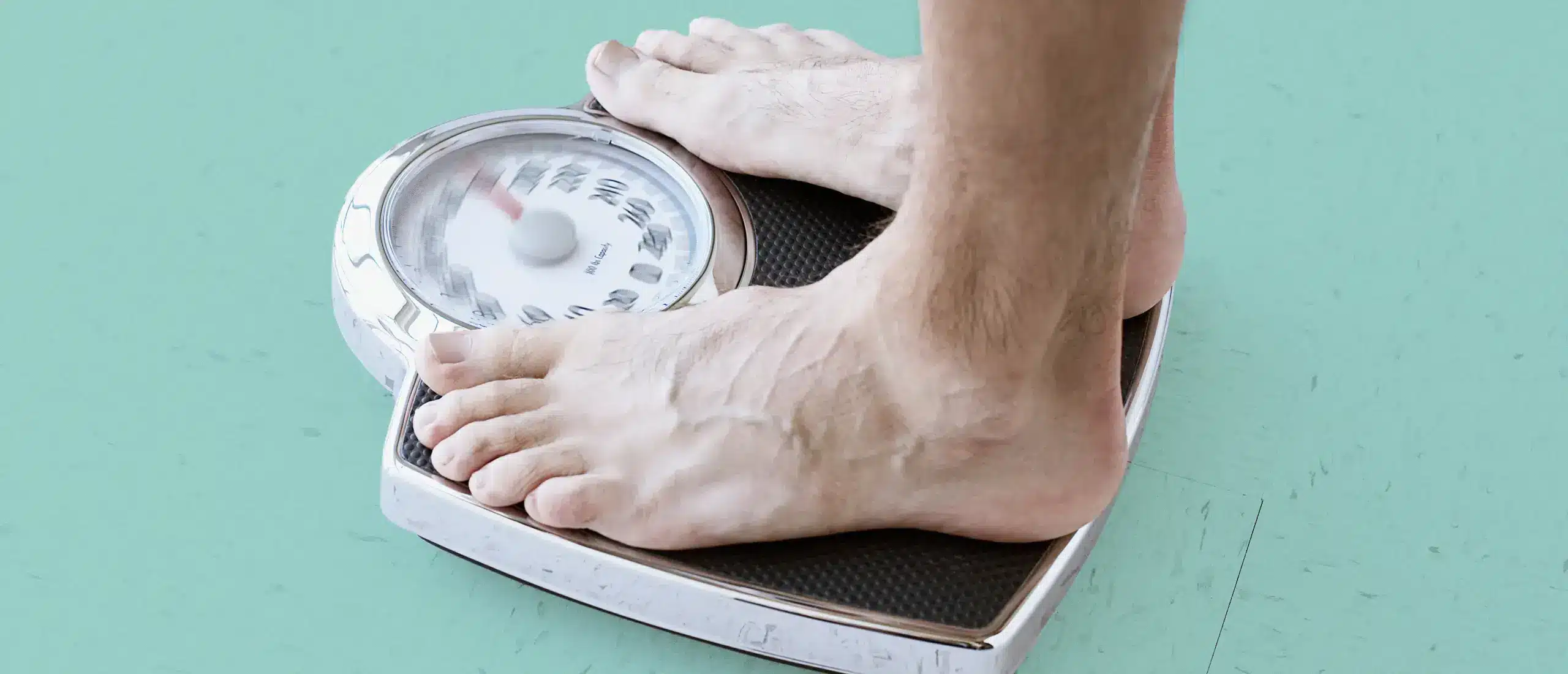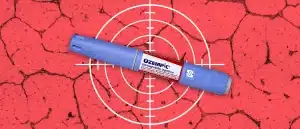Why Am I Not Losing Weight on Ozempic?
- By Rebekah Harding
- Fact-checked by Aviv Joshua
- November 9, 2023
30-Second Takeaway
- It may take a few weeks after starting Ozempic to start losing weight.
- Hormonal imbalances, weight loss plateaus, and high-calorie diets may halt Ozempic weight loss results.
- If you’re still not losing weight after your body has adjusted to the medication, your doctor may recommend changes to your dose, diet, exercise routine, and stress management.
T
ons of celebrities (and normies alike) tout Ozempic—an injectable drug that’s FDA-approved to treat type 2 diabetes and is also prescribed off label for weight loss—as a miracle weight loss treatment. Tech mogul Elon Musk slashed 20 pounds off the scale using semaglutide, and Fanatics CEO Michael Rubin thinks weight loss injections are the only thing keeping him from looking like “the Pillsbury Doughboy.” But if you haven’t gotten similar results, you’re probably wondering, “why the hell am I not losing weight on Ozempic?”
“Approximately 20 percent of my patients experience no initial weight loss during the first few weeks on Ozempic,” says osteopathic medicine doctor Kevin Huffman, D.O. “The body requires time to adapt to these new metabolic changes. This delay does not [equal] failure.”
Weight loss experts break down why you aren’t losing weight on Ozempic, and how you can optimize your treatment protocol.
How Does Ozempic Work for Weight Loss?
Semaglutide, the active ingredient in weight loss drugs like Ozempic and Wegovy (a version FDA approved for long-term weight management), belongs to a class of medications called GLP-1 receptor agonists.
GLP-1 is a hormone your body naturally makes to regulate blood glucose levels, appetite, and metabolism (1). Semaglutide binds to GLP-1 receptors in your brain, which tricks your body into thinking you’re full—even if it’s been a couple hours since your last meal.
“[Semaglutide]’s approach is twofold: it improves blood glucose regulation, and it suppresses appetite,” Huffman explains. “As a result, Ozempic reduces caloric intake and fosters weight loss.”
Why Am I Not Losing Weight on Ozempic?
Even if Ozempic has tanked your appetite and improved your blood glucose levels, you might be losing weight slower than expected—or not at all. Here are the most common culprits:
You aren’t optimizing your diet
“If I have a client who is not losing weight [on Ozempic], I carefully evaluate their diet,” says registered dietitian and doctor in clinical nutrition Su-Nui Escobar, DCN, RDN.
Even if you aren’t as hungry as you were before starting Ozempic, “small portions of food can be high in calories if consumed frequently,” says Escobar. Consuming more calories than your body needs can keep you from hitting your weight loss goal.
To maximize weight loss on Ozempic, Escobar recommends nutrient-dense foods, regular meals two to three times a day, and limited high-fat and calorie-dense foods, sugary drinks, and alcohol.
Escobar recommends the U.S. Department of Agriculture app, My Plate, to track portion sizes and set macro goals.
About the Experts:
Dr. Kevin Huffman, D.O., is an osteopathic medicine specialist and founder of fitness brands On the Rocks Climbing Gym, Ambari Nutrition, and Bariatric Food Source.
Dr. Su-Nui Escobar, DCN, RDN, FAND, is a doctor in clinical nutrition, registered dietitian, and a fellow of the Academy of Nutrition and Dietetics. She currently provides nutrition counseling to those on clinical trials for semaglutide for weight loss.
You have a medical condition
If you have a pre-existing medical condition, you may lose weight slower than other people on Ozempic.
“Hormonal imbalances linked with thyroid disorders and adrenal gland diseases can skew metabolism, which complicates weight loss,” Huffman says.
Around 40 percent of adults have insulin resistance, a condition in which your body can’t convert sugar into energy (2). This causes sugar to stay in the bloodstream, which spikes insulin levels—leading to rapid weight gain.
Hypothyroidism—also called an underactive thyroid— is when your thyroid gland (a small butterfly-shaped gland at the base of your neck) doesn’t produce enough of the T3 and T4 hormones, which help regulate your metabolism (3). When T3 and T4 levels are low, you burn calories at a slower rate—which means that the effects of the calorie deficit you get from Ozempic may not be as powerful.
Your adrenal glands produce cortisol, a hormone that regulates stress levels and metabolism (4). Cushing’s Syndrome, an adrenal gland disease caused by excess cortisol, can lead to more fat accumulation around the gut and muscle loss (5).
These are the most common hormone-related health conditions that can mess with your weight loss progress on Ozempic, according to Huffman:
- Polycystic ovary syndrome
- Insulin resistance
- Hypothyroidism
- Cushing’s Syndrome
- Addison’s disease
Depression and anxiety can also indirectly throw a wrench in your semaglutide treatment, per Huffman, since poor mental health can negatively “influence dietary habits and sap motivation for physical activity.”
If you are diagnosed with—or suspect you may have—one of these conditions, talk to your healthcare provider about how your condition might impact your Ozempic treatment.
You’ve hit a weight loss plateau
“During their weight loss journey with Ozempic, patients may reach a phase—often referred to as a ‘plateau’—where weight loss appears stagnant,” Huffman says. “In fact, this occurs for approximately 50 percent of individuals after six months of treatment.”
Weight loss plateaus occur when your body gets used to your current dose of semaglutide, per Huffman. For most of his patients, this occurs around the six to twelve month mark.
“Don’t view these plateaus as failures,” Huffman says. “Instead, see them as opportunities for reassessing and resetting your weight loss strategy.”
If you think you’ve hit a weight loss plateau, Huffman recommends talking to your doctor about changing your diet, workout routine, stress management strategies, and Ozempic dosage.
How Fast Will I Lose Weight on Ozempic?
Billionaire before and after images make it seem like Ozempic will have you losing pant sizes every week. Unfortunately, that’s not how it works.
“Set realistic expectations. Weight loss of 1 to 2 percent of your initial body weight a week is safe,” says Escobar. “For most, this will be between one to three pounds per week.”
“Many patients want to see a drastic weight loss, which might take several months,” Escobar explains.
Check your body composition
How many pounds you’ve lost might not be a good indication of how far you’ve come in your weight loss journey.
“I also ask for non-scale measurements. It is common to see a small weight loss but a significant change in how the clothes fit or measurements,” Escobar says. “This is still a win.”
In fact, organizations like the American Medical Association (AMA) are moving away from the traditional BMI scale, which evaluates your health based on weight and height alone. Instead, the AMA’s new policy asks physicians to evaluate obesity based on factors like visceral fat (belly fat), body composition, relative fat mass (ratio of height and waist measurements), waist circumference and genetic factors.
How to Optimize Weight Loss on Ozempic
Get enough exercise
“I ask my clients to exercise at least 180 minutes per week,” Escobar says. This recommendation is generally part of broader diabetes management and health advice (6), as exercise is linked to insulin sensitivity, lower blood sugar levels, and overall cardiovascular health (7).
Regular exercise compliments the weight loss benefits of Ozempic by promoting better glucose control.
Eat more protein
Want to avoid Ozempic butt? Experts like longevity doctor Peter Attia note that Ozempic can cause equal muscle-to-fat loss—which means your weight loss treatment could be making you metabolically fatter.
To remedy this, Escobar recommends upping your protein intake. “[I recommend] at least 25-30 grams of protein with all meals, including breakfast,” Escobar says.
Research shows that high-protein diets are linked to greater fat loss and less lean mass loss in dietary trials (8), which could optimize your Ozempic results.
References
1. Drucker (2022). GLP-1 physiology informs the pharmacotherapy of obesity.
2. Freeman, et al (2023). Insulin Resistance.
3. Sanyal, et al (2016). Hypothyroidism and obesity: An intriguing link.
4. MedlinePlus. Adrenal Gland Disorders.
5. MedlinePlus. Cushing’s Syndrome.
6. Adams (2013). The impact of brief high-intensity exercise on blood glucose levels.
7. Kirwan, et al (2017). The essential role of exercise in the management of type 2 diabetes.
8. Kim, et al (2016). Effects of dietary protein intake on body composition changes after weight loss in older adults: a systematic review and meta-analysis














